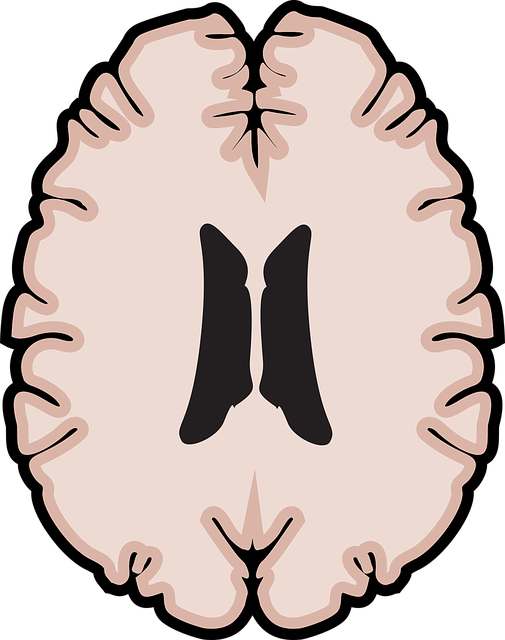Northglenn Trauma Therapy prioritizes client safety through comprehensive risk assessment, identifying vulnerabilities, and implementing personalized harm minimization strategies. Their dynamic approach integrates holistic considerations and evidence-based practices to create a therapeutic environment that enhances emotional well-being while minimizing risks. The Community Outreach Program expands services, demanding meticulous planning to mitigate potential harms like privacy breaches or exacerbating mental health conditions. Regular reviews ensure Northglenn Trauma Therapy remains a tailored haven for healing and growth, fostering resilience among clients and therapists alike.
Risk assessment and harm minimization planning are essential components of safe practice in trauma therapy. This article explores these critical processes, using Northglenn Trauma Therapy as a case study. We delve into understanding risk assessment as the foundation for creating a secure environment. By identifying potential harms and vulnerabilities, therapists can develop comprehensive minimization plans tailored to individual needs. Implementation and regular review ensure client safety, making Northglenn Trauma Therapy a leader in proactive harm mitigation strategies.
- Understanding Risk Assessment: The Foundation of Safe Practice at Northglenn Trauma Therapy
- Identifying Potential Harms and Vulnerabilities
- Developing a Comprehensive Minimization Plan
- Implementation and Regular Review: Ensuring Client Safety at Every Step
Understanding Risk Assessment: The Foundation of Safe Practice at Northglenn Trauma Therapy

At Northglenn Trauma Therapy, understanding risk assessment is considered the cornerstone of safe practice. This involves meticulously evaluating potential hazards and their likelihood of causing harm within various therapeutic settings. By adopting a proactive approach, mental health professionals at Northglenn Trauma Therapy can implement effective risk management strategies tailored to individual client needs.
The process encompasses not only identifying risks but also assessing vulnerabilities and determining appropriate interventions. Through rigorous risk assessment, the therapy center aims to foster an environment that promotes emotional well-being while minimizing potential harms. This holistic approach, combined with evidence-based practices, ensures that clients receive the highest standard of care, enabling them to navigate their mental health journeys with enhanced resilience and safety.
Identifying Potential Harms and Vulnerabilities

Identifying potential harms and vulnerabilities is a critical step in risk assessment for any organization or community, including Northglenn Trauma Therapy. This process involves a thorough examination of various aspects to ensure the safety and well-being of individuals seeking therapy or participating in programs. It encompasses recognizing emotional, physical, and psychological hazards that may exist within the therapeutic environment or as part of community outreach initiatives. For instance, organizing Stress Management Workshops can help participants cope with stress but also identifies vulnerabilities like potential triggers for anxiety disorders, which require careful management.
By implementing a Community Outreach Program, Northglenn Trauma Therapy can expand its services and reach diverse populations. This strategic move not only amplifies the therapeutic benefits but also demands a meticulous harm minimization plan. It involves assessing risks associated with different outreach methods, such as public speaking engagements or online sessions, and developing strategies to mitigate potential harms, including privacy breaches or exacerbating existing mental health conditions. Addressing these vulnerabilities is essential in fostering a safe and inclusive environment for self-esteem improvement and overall emotional well-being.
Developing a Comprehensive Minimization Plan

Developing a comprehensive harm minimization plan is a crucial step in risk assessment, particularly for individuals seeking Northglenn Trauma Therapy. This involves creating a structured strategy to address potential triggers and challenges that may arise during the healing process. The first step is identifying specific areas of concern, whether it’s related to past traumas, anxiety, or stress management. By recognizing these triggers, therapy can be tailored to address them effectively.
A well-rounded minimization plan incorporates various self-care practices, including the development of a consistent self-care routine for better mental health. This might involve incorporating activities that foster inner strength development, such as mindfulness exercises, regular physical activity, and healthy sleep habits. Additionally, learning coping mechanisms tailored to individual needs ensures a robust framework for navigating emotional challenges.
Implementation and Regular Review: Ensuring Client Safety at Every Step

At Northglenn Trauma Therapy, we understand that effective risk assessment and harm minimization planning are paramount to ensuring client safety throughout every stage of therapy. Our dedicated team recognizes that trauma healing is a dynamic process, requiring constant vigilance and adaptation. Therefore, we implement robust protocols for regular review and evaluation, allowing us to promptly address any emerging risks or changing circumstances.
Through our Community Outreach Program Implementation, we actively engage with the community to promote Emotional Well-being Promotion Techniques, fostering an environment where clients feel supported and secure. By integrating these strategies, we aim to prevent burnout among both clients and therapists while maximizing the therapeutic benefits for all parties involved. Regular reviews enable us to tailor our approach, ensuring that Northglenn Trauma Therapy remains a haven for healing and growth.
Northglenn Trauma Therapy has established a robust framework for risk assessment and harm minimization planning, ensuring client safety is paramount. By understanding the foundational principles of risk assessment, identifying potential harms, and developing comprehensive minimization strategies, the therapy center proactively navigates challenges. Regular review and implementation of these plans are integral to the continuous improvement of safe practices, reflecting Northglenn Trauma Therapy’s commitment to fostering a secure environment for all clients.














